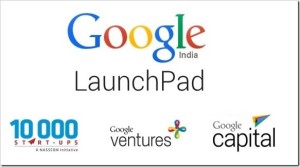 Google recently tested its startup mentorship program in Israel and is now shifting its focus to Indian startups. Due to the developing interest in Indian startups, Google has decided to implement its startup program, Launchpad, in India. Monday was the start of the first of four weeks long programs. So far, Launchpad has a shortlist of 20 startups and 1,450 venture capitalists to fund the projects. Most of these companies are in the education and healthcare industries Representatives from Google and other companies will mentor and coach developing startups looking to grow.
Google recently tested its startup mentorship program in Israel and is now shifting its focus to Indian startups. Due to the developing interest in Indian startups, Google has decided to implement its startup program, Launchpad, in India. Monday was the start of the first of four weeks long programs. So far, Launchpad has a shortlist of 20 startups and 1,450 venture capitalists to fund the projects. Most of these companies are in the education and healthcare industries Representatives from Google and other companies will mentor and coach developing startups looking to grow.
This will be beneficial for Google for investment purposes in the future as well as emerging itself in the bolstering digital economy in India. Google Ventures has already invested in a real estate customer support tool, Commonfloor and Freshdesk.
Launchpad is set to mentor close to 100 companies in India. Launchpad started in Israel three years ago, and is currently in 20 different cities around the world. As the digital economy grows, so does Google because companies spend money on Google to obtain a larger customer base. Last year, Google increased online advertising spent by e-commerce companies by 47% year-on-year.
All companies that Google aids in their startup program will be consolidated under Launchpad. Google’s Launchpad is seen as a platform to train developers on how to turn their product into a startup company. While most of Launchpad’s activities will be focused in Bengaluru, Google’s startup mentorship program plans to situate itself in 50 different cities all over India.
Google is not the only company entering India’s digital economy. A couple of months ago, Microsoft launched their business accelerator program Microsoft Ventures in India. From 2013, venture capital funding in India is up 261% or $3.86 billion. Venture capital companies form all over the world are intrigued by India’s bolstering digital economy, as Japan’s Softbank plans to invest $10 billion in India’s startup industry.
 The Chinese smartphone startup, Xiaomi, has raised $1.1 billion from venture capitalists in the last four years. The company has been valued at $45 billion. The company’s co-founder, Bin Lin, made the news public on Facebook. Xiaomi has surpassed Uber for the fastest growing startup in the world, and is currently ranked 3rd among global smartphone producers. Xiaomi attributes its continued success to their lower-cost products.
The Chinese smartphone startup, Xiaomi, has raised $1.1 billion from venture capitalists in the last four years. The company has been valued at $45 billion. The company’s co-founder, Bin Lin, made the news public on Facebook. Xiaomi has surpassed Uber for the fastest growing startup in the world, and is currently ranked 3rd among global smartphone producers. Xiaomi attributes its continued success to their lower-cost products.